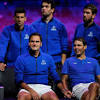Who is Alexander Dugin? Putin ally, spiritual guide and assassination target


From the beginning of the war in Ukraine, and especially when things looked bad for Russian troops and commanders, there were questions about whether Kremlin officials or ideologues — if not Russia President Vladimir Putin himself — might be vulnerable. Early in the war, analysts listed a Moscow “palace coup” among potential endgames for the war; by mid-May, as Grid’s Joshua Keating reported, while “a palace coup in the Kremlin remains a possibility … we haven’t yet seen the kind of fracturing among Putin’s top aides or mass public opposition that would force the Kremlin to change its strategy.” The Kremlin had effectively quashed internal dissent, and sanctions against rich oligarchs and others with ties to the Kremlin had produced no examples of “Kremlin influencers” publicly opposing Putin or his war.
All this explains why the assassination Saturday of Daria Dugina is generating so much attention. Multiple accounts suggest the target was Dugina’s father, Alexander Dugin, the Russian ideologue known variously as “Putin’s brain” or “Putin’s philosopher.” Dugina had been driving her father’s car; Dugin was seen in the fiery aftermath, having apparently gotten into a car riding just behind his daughter’s.
Who is Alexander Dugin?For starters, Dugin is no Kremlin insider. More like a Kremlin influencer. Or a Putin influencer. And his actual influence is a matter of debate. At a minimum, Dugin is an ideologue whose extreme nationalistic — some would say fascistic — beliefs have tracked closely with Putin’s own for more than a decade. Former Russian TV journalist Stanislav Kucher told Grid that while Dugin is “nowhere close to Putin” in any kind of Kremlin hierarchy, he is a longtime proponent of the worldview known as “Russkiy Mir” or “Russian world” — an expansionist ideology which, as Grid reported last month, Putin has embraced as his own.
“‘Russkiy Mir,’” Kucher said, “goes to the heart of Putin’s view of his country and what he sees as its exalted place on the planet, a view that has animated much of what he has done as Russia’s leader.”
In this worldview, Russia deserves the respect and power to match its rich history and culture. When Dugin — and Putin — say “Russia,” they no longer mean the Russian Federation within its current boundaries. They refer to — or imagine — territory to match the former Soviet empire, encompassing any lands where Russians live or where the Russian language is spoken.
Anything less, in the Dugin-Putin view, would be a humiliation, just as the demise of the Soviet Union in 1991 and subsequent eastward expansion of NATO have been seen by the Kremlin as humiliations and offenses worthy of forceful responses. Even war. And the U.S. and NATO — a grouping that Dugin has referred to as the “Atlantic world” — are the core enemies.
“He is a far-right Russian ideologue and propagandist,” Ksenia Kirillova, a former reporter for Russia’s Novaya Gazeta who now lives in the U.S., told Grid. “He has deep ties with the military, political and economic elite.”
On at least one occasion, Dugin has found common cause with an American leader. In 2017, Dugin told CNN that he saw echoes of his own thinking in Donald Trump’s inauguration speech. It was, he said, “as if I would write it myself.”
Dugin was an anti-communist dissident in the 1980s who became, in the years following the Soviet Union’s demise, a passionate advocate of the return of Russian power. Ukraine became central to Dugin’s thinking nearly a decade ago. He called the 2013 protests against Ukraine’s pro-Russian leaders a “coup d’état by the United States.” It was essential to restore a “Greater Russia,” said Dugin, to ensure that “we can become a credible global player.”
The U.S. imposed sanctions against Dugin in 2015 for aiding and recruiting Russian-backed separatists in eastern Ukraine. After this year’s Russian invasion of Ukraine, the U.S. and U.K. also imposed sanctions on Dugina as well; as a journalist, she had published anti-Ukraine diatribes — including claims that the spring massacres at Bucha that were cited as misinformation had been staged by the U.S.
If anything, Dugin was critical of the Kremlin for not prosecuting the war with sufficient ferocity.
In what may have been his final message before the attack that killed his daughter, Dugin posted a message to his channel on Telegram warning that Russia could not win its war in Ukraine unless the Kremlin ordered a mass mobilization of forces. Russia has “challenged the West as a civilization,” Dugin said. “This means that we must also go to the end.”
Who would wish him dead?If the Ukrainians carried out Saturday’s attack, it’s a strike deep behind enemy lines, an assassin’s version of the recent infiltration and strikes carried out against Russian military infrastructure in Crimea. If the Russians did it, it raises fresh questions about dissent or at least disaffection inside the country. Some are suggesting that whoever planted the bomb, the Kremlin may use the attack as a pretext for an even more forceful crackdown on dissent.
We may not know the answers for some time. On Sunday, Russian authorities said they had opened a murder investigation into the killing. All they would say was that “the crime was pre-planned” — and “of an ordered nature.” The Ukrainians, for their part, said they had nothing to do with the attack.
Thanks to Lillian Barkley for copy editing this article.


 United States
United States Argentina
Argentina  Australia
Australia  Austria
Austria  Brazil
Brazil  Canada
Canada  Chile
Chile  Czechia
Czechia  France
France  Germany
Germany  Greece
Greece  Italy
Italy  Mexico
Mexico  New Zealand
New Zealand  Nigeria
Nigeria  Norway
Norway  Poland
Poland  Portugal
Portugal  Sweden
Sweden  Switzerland
Switzerland  United Kingdom
United Kingdom 



























